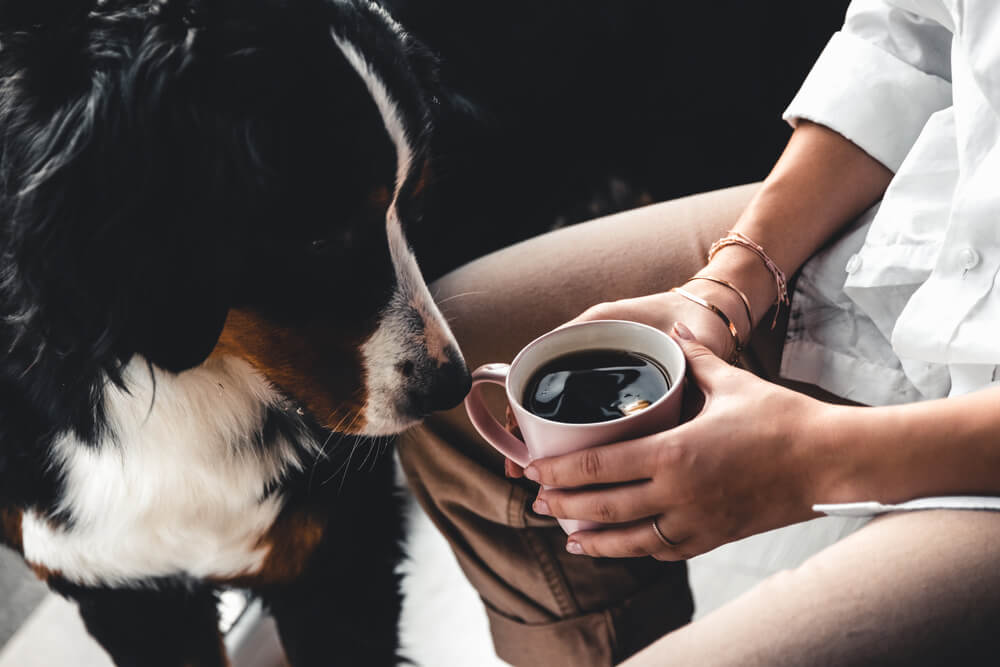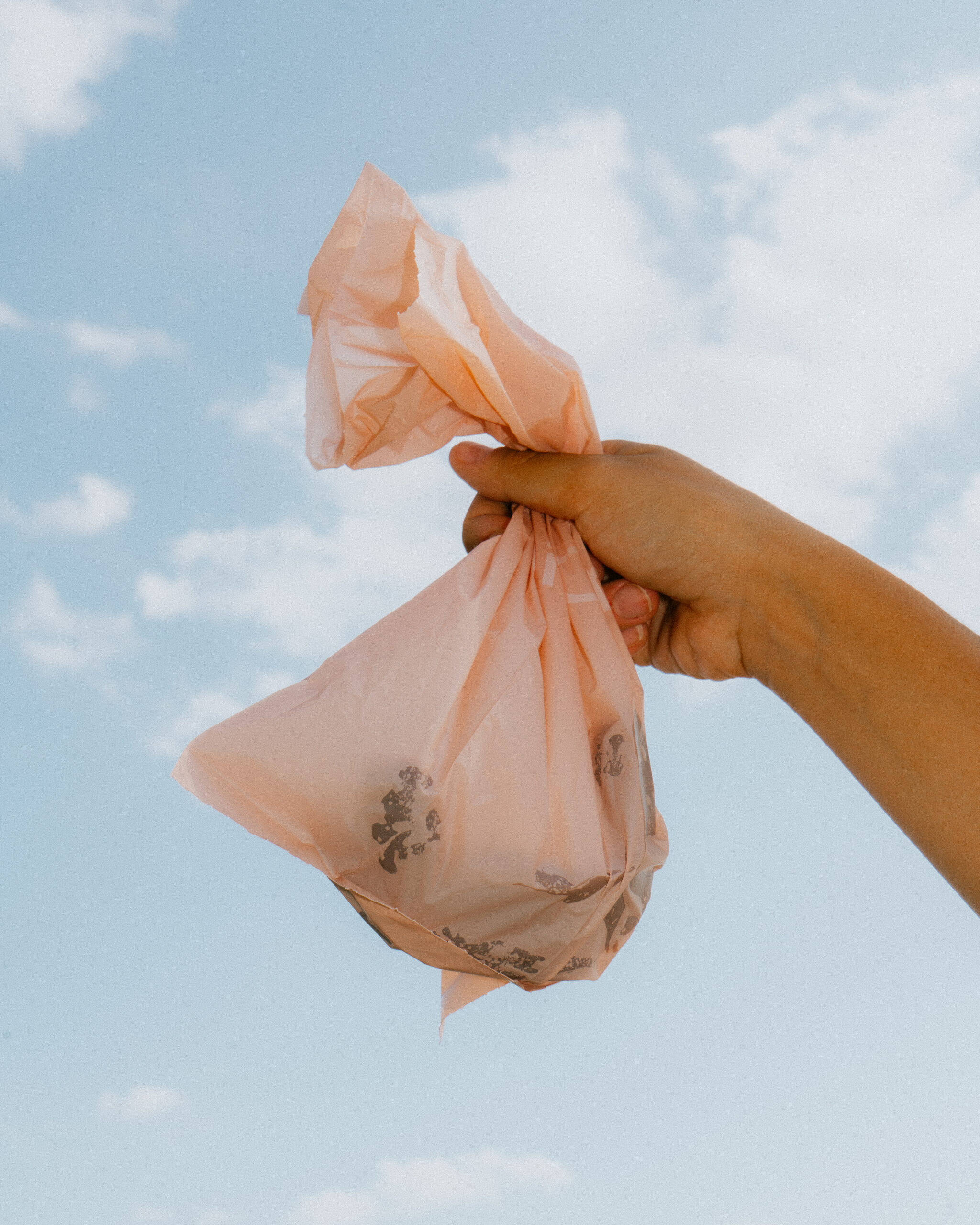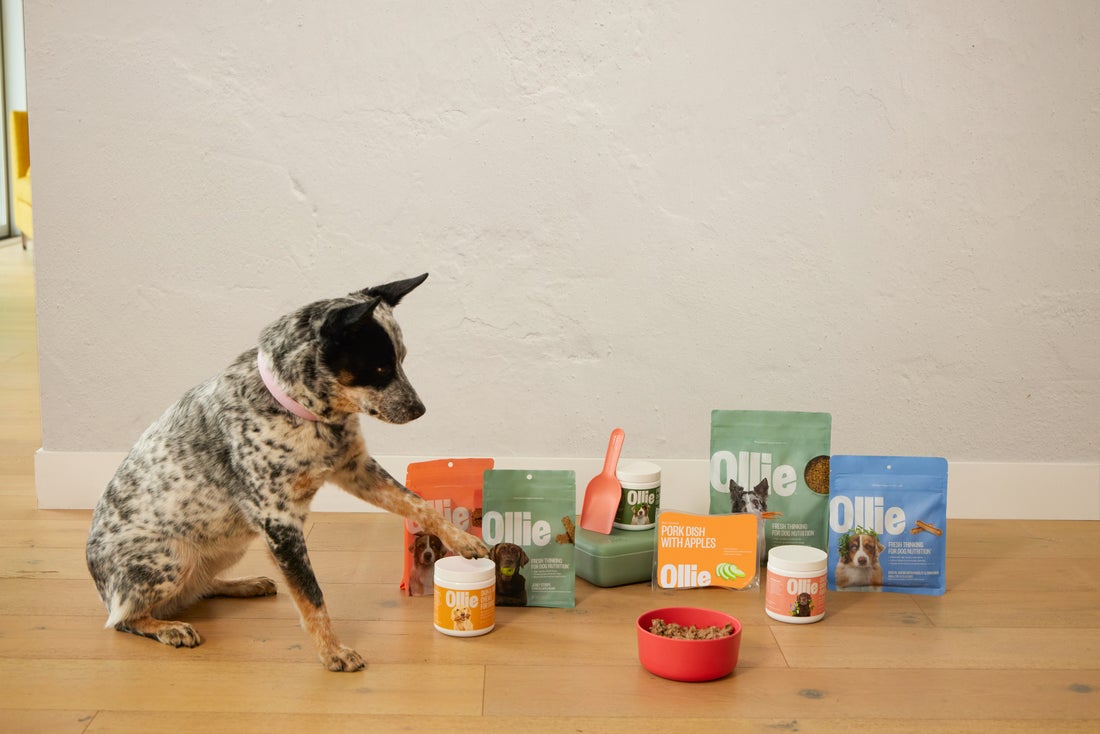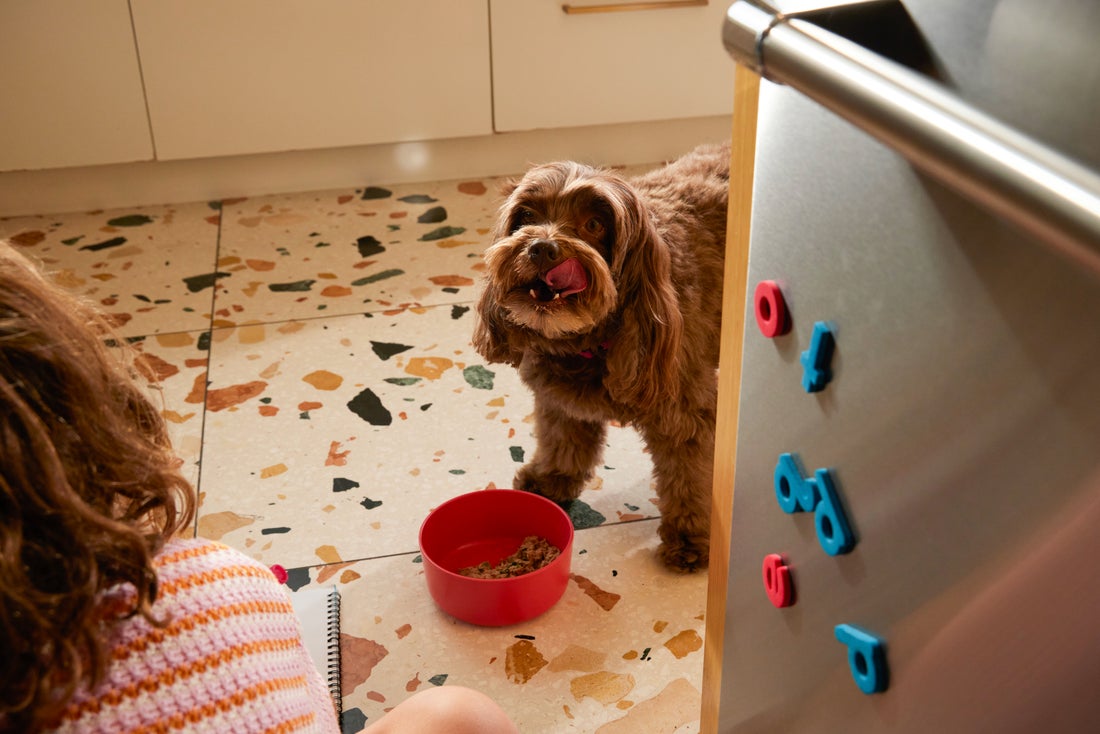Hey Ollie blog readers! We’re offering you an exclusive 60% OFF your starter box! Try now!
Offering our dogs human food can sometimes be tempting (even when we know we shouldn’t). There’s something about the way our pets look up at us while we’re munching on a bagel or cutting up a piece of chicken that can compel even the strongest will to share their meal.
Unfortunately, many of the things we ingest daily can make our dogs very sick. Coffee, which many people drink every day, is one of those foods. As it turns out, the caffeine content makes coffee an unsafe food for your dog in any amount. To learn more about how caffeine affects dogs, read on.
Can dogs drink coffee?
Caffeine acts as a stimulant, affecting the nervous system and the heart. Dogs feel this effect as well, but their caffeine tolerance differs from the 400mg or so per day that most humans can safely ingest.
"The size of the pet and the amount [of caffeine] ingested are important aspects that can determine the severity of the symptoms," said Mason Romero, DVM, a veterinary advisor at BetterPet. "Unfortunately, even for a large dog, it only takes ingesting a small amount to have toxic effects."
The legal dosage of caffeine varies depending on the size of your dog. The smallest breeds such as Chihuahuas can become severely ill just from ingesting .1 oz of coffee beans, or 3 ounces of regular brewed coffee. Larger breeds such as Golden Retrievers would need to consume more to reach toxic levels. In other words, drinking a splash of coffee is unlikely to contain enough caffeine to irreparably harm your dog, although it might make them sick; however, if your dog were to eat coffee grounds, it could lead to serious caffeine poisoning. Too much caffeine can even be fatal for a dog.
Symptoms of caffeine poisoning in dogs
The severe symptoms of caffeine poisoning in dogs can appear within an hour of your dog ingesting the caffeine. If your dog has only ingested a small amount of caffeine, you might notice they seem hyperactive or weird. However, caffeine poisoning can quickly become more serious, Romero said.
“Symptoms can start as early as 30 minutes after ingestion and can last anywhere from 12 hours to several days,” he said. “Pets can become very hyperactive. They can experience an elevated heart rate and elevated blood pressure. Dangerous arrhythmias can develop with the heart as well.”
Romero added that common signs of caffeine poisoning also include:
- Vomiting
- Diarrhea
- Loss of muscle control
- Tremors
- Seizures
- Collapse
Ultimately, caffeine poisoning can be lethal, he said.
“Caffeine poisoning is not something to be taken lightly,” Romero said. “The quicker a pet can be seen by a veterinarian and get treatment started, the greater the chances of having a positive outcome.
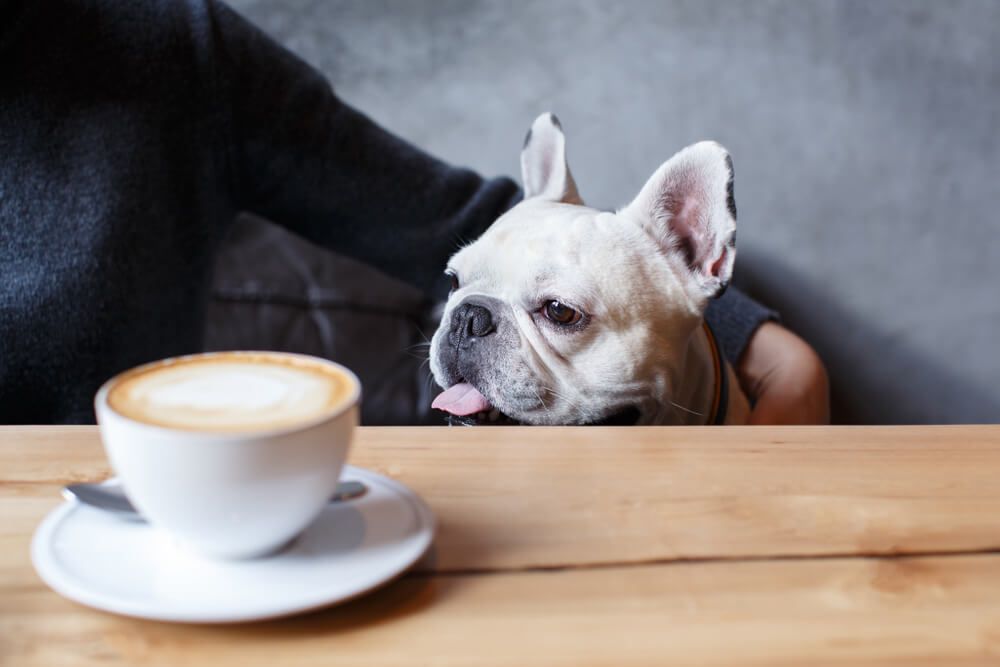
What should I do if my dog drank coffee?
If you think your dog has ingested caffeine, either by drinking coffee, eating coffee grounds, or consuming some other type of caffeine product, bring your dog to a veterinarian immediately. The vet can properly assess the symptoms of caffeine poisoning and administer treatment.
“Depending on the severity, the pet may need to be hospitalized for several days for continuous observation,” Romero said. “Treatment often includes inducing vomiting, checking blood parameters to monitor organ function, heart rate and blood pressure monitoring, medications for tremors and seizures if those symptoms are present, monitoring heart rhythm, and IV fluid therapy.”
If your veterinarian is not available, contact a pet poison control center immediately and bring your dog to the nearest emergency facility. Once your dog’s condition is stabilized and they begin to recover, schedule a follow up with your veterinarian as soon as possible to ensure your dog’s health has not been significantly compromised.
Commons sources of caffeine
Of course, coffee is not the only source of caffeine that many people keep in their households. These other common sources of caffeine could also pose a danger to dogs if not properly stored and kept out of your canine companion’s reach:
- Tea
- Energy drinks
- Caffeine pills
- Diet pills
- Soda
- Chocolate
- Decaffeinated coffee and tea
“Most people name coffee as the number one source of caffeine and they would be right, [but] we also cannot forget about those energy or sports drinks in the fridge,” Romero said.
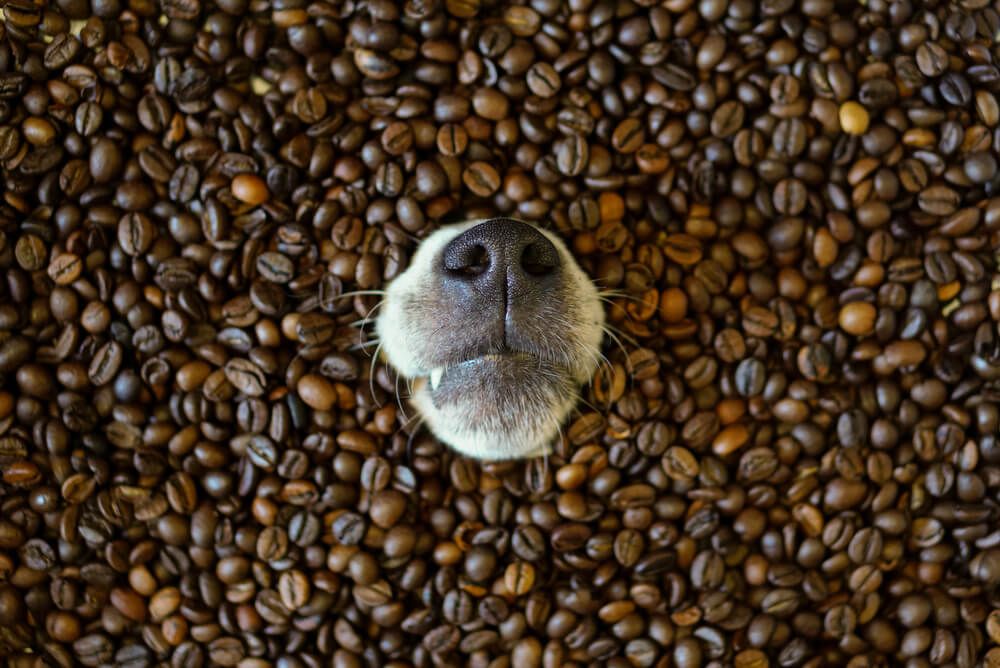
Caffeine for dogs: Keep caffeine out of your dog’s reach
While caffeine might be helpful for you to start your day, it can make your pets extremely ill and threaten their lives. When you’re finished brewing your morning pot of coffee, make sure the grounds are out of reach of your pet’s paws.
As always, if you’re unsure whether your dog can ingest a certain type of food or drink, err on the side of caution. It can be tempting to give your furry friend a special treat now and again, but offering them the wrong snack, such as grapes, chocolate, or onions, could have serious – even deadly – consequences. While there are plenty of human foods like flaxseed or honey that are fine to share with your dog, caffeine is simply one of those substances that your dog should never ingest.
While exploring new nutritious options for your pet, consider a dog food service that puts freshness first. Ollie only uses human-grade meats, incorporates vegetables, fruits, and seeds packed with nutritional value, and leaves the fillers behind. Explore Ollie’s beef, chicken, lamb, and turkey recipes, portioned for your dog’s weight, breed, and age. Our meals are delivered right to your door — just pop them in the freezer and thaw a portion in the fridge before each meal. As always, consult a veterinarian before adding anything new to your dog’s diet.
The Ollie blog is devoted to helping pet parents lead healthier lives with their pups. If you want to learn more about our fresh, human-grade food, check out MyOllie.com.
Tagged As:

The nutrition your dog needs,
the food they want.

Enjoying our articles? Subscribe our Newsletters and get new articles directly to your inbox
You might also like
30 July 2025
3 MINS READ
The Poop Scoop: Your Dog Digestion Questions Answered
As pup parents, we spend a lot of time handling dog poop, and as a key indicator of a dog’s health, it’s only fitting that we think and talk about it just as much. Unfortunately, what happens …
18 July 2025
6 MINS READ
Can You Mix Fresh Dog Food With Kibble?
If you’re feeding your dog kibble but want to upgrade their bowl, you’re not alone. Many pet parents ask if they can mix fresh dog food with kibble to get some of the benefits of fresh food wi…
by Ollie Pets
18 July 2025
5 MINS READ
Does Fresh Dog Food Help With Weight Loss?
If you’ve noticed your dog carrying a few extra pounds, you’re not alone. According to the Association for Pet Obesity Prevention, over half of dogs in the U.S. are overweight or obese. Extra …
by Ollie Pets
